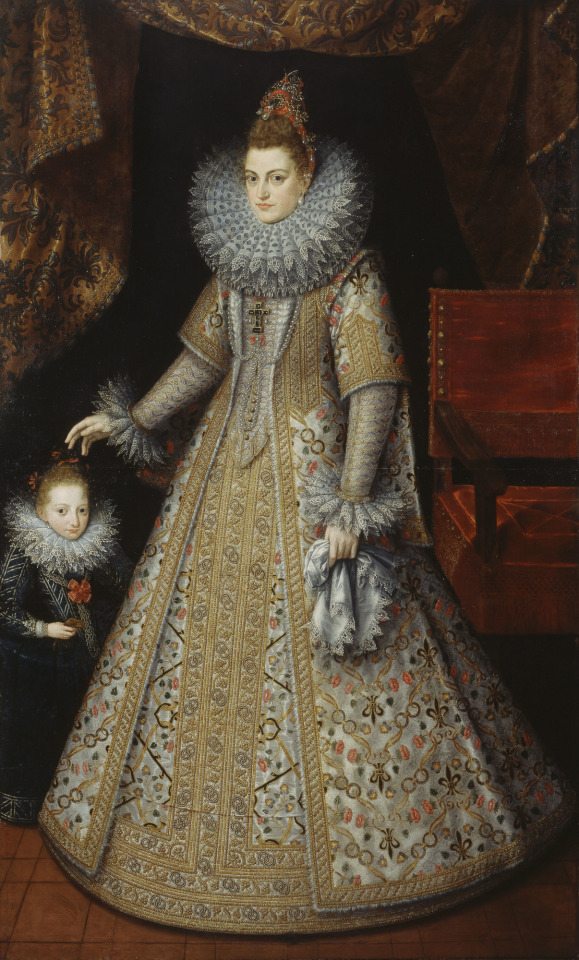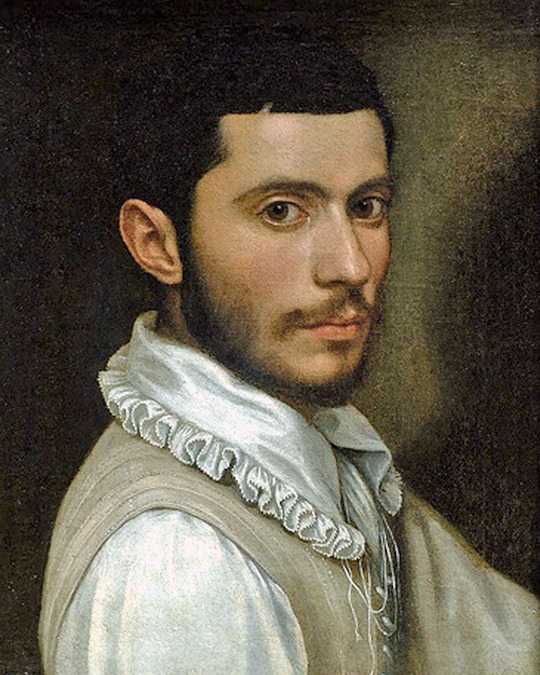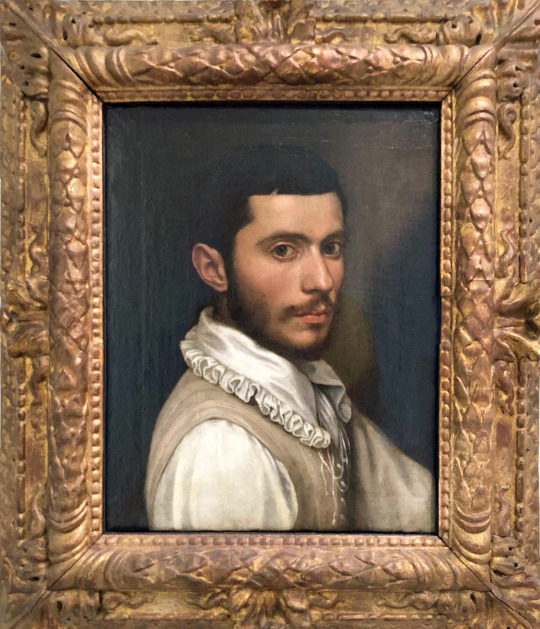#1598
Explore tagged Tumblr posts
Text

Akutagawa daily 1598★
51 notes
·
View notes
Text

Nativity of the Virgin
c.1598
Francesco Albani (Itallian, 1578-1660)
#1500s art#1500s#1598#Francesco albani#art#art history#baroque art#baroque painting#painting#baroque
10 notes
·
View notes
Photo

Louis XIV and the Revocation of the Edict of Nantes
Beginning in the 16th century, Protestants in France struggled in their rapport with royal power. Protestants owed the recognition of their rights more to sovereign decrees than to genuine tolerance or religious pluralism. The realization that the monarch held the authority to revoke what had been granted led to suspicion and mistrust toward rulers. Under Louis XIV of France (r. 1643–1715), they lost the rights gained under Henry IV of France (r. 1589–1610).
Edict of Nantes Undermined
Louis XIV, known also as the Sun King (le Roi Soleil), was one of the most illustrious French kings. His reign was marked by cultural and military achievements as well as endless wars and religious intolerance. During the reign of his grandfather Henry IV, the effects of the Edict of Nantes in 1598 allowed French Catholics and Protestants to cohabitate in an uneasy peace. After the death of Henry IV in 1610, the Catholic Church and monarchy began plotting the removal of protections provided under the Edict of Nantes leading to its Revocation in 1685.
Early in Louis XIV’s reign, there was a season of religious tranquility for Protestants. With Cardinal Mazarin (l. 1601–1661) at his side, Louis XIV initially thought that strict respect for previous edicts and the refusal to grant additional rights was the most effective way to reduce the number of Protestants in his kingdom. Mazarin himself exercised tolerance in granting employment and government positions to Protestants, and he did not give satisfaction to the complaints of Catholic clergy who protested the construction of Protestant temples. A royal declaration in 1652 recognized Protestant fidelity to the Crown and promised the maintenance of the Edict of Nantes with the enjoyment of all its benefits. In 1656 this declaration was revoked and the exercise of Reformed religion was forbidden in places where it had recently been established. Provincial synods sent a delegation to present their grievances to the king who authorized them to hold a general synod in November 1659 at Loudun. The king’s representative reproached the Protestants in attendance for their insolence and announced that this would be their last general synod.
After the death of Mazarin, Louis XIV was determined to become the absolute master of his kingdom. With hostile measures, he sought to paralyze Protestant vitality and bring about conversions to Catholicism. The king reinstated the Commissions as the principal means of repression through which he sent commissioners into the provinces to investigate reported or supposed violations of the Edict of Nantes. Reformed churches were placed in an accusatory posture and had to justify their existence while Catholic Church representatives argued systematically for the closure of Reformed churches. Dozens of churches were forcibly closed in the provinces of Bas-Languedoc and the Cévennes where there were about 140,000 Protestants, or religionnaires as they were called.
Continue reading...
23 notes
·
View notes
Text

#daily-smiling-natsume#natsume yuujinchou#natsume takashi#tanuma kaname#nishimura satoru#kitamoto atsushi#nyanko sensei#madara#ch111#1598
54 notes
·
View notes
Text

~1598, Caravaggio, Sacrificio di Isacco

~1603, Caravaggio, Sacrificio di Isacco (Gallerie degli Uffizi)
#Caravagius#Caravaggio#Sacrificio di Isacco#saec. XVI#1598#saec. XVII#1603#pictura#Collectio privata#Princetoniae#Piasecka-Johnson#Gallerie degli Uffizi#Florentiae
3 notes
·
View notes
Text

6 notes
·
View notes
Text

Oil Painting, ca. 1598-1600, Spanish.
By Frans Pourbus the Younger.
Portraying the Infanta Isabella Clara Eugenia.
Royal Collection Trust.
#royal collection trust#infanta Isabella Clara Eugenia#1598#1590s#1590s painting#1590s Spain#Spanish#Spain#womenswear#dress#16th century#Frans pourbus the younger
27 notes
·
View notes
Text
Emotion (1966) directed by Nobuhiko Obayashi and other ...
Reblog from dorkvader origin charitydingle

Emotion stylized on-screen as Émotion, is a 1966 Japanese experimentalshort film directed by Nobuhiko Obayashi. A young woman who travels from a seaside village to a city, where she meets another girl named Sari and encounters a vampire. Emotion (film) - Wikipedia

Émotion — 1966, dir. Nobuhiko Obayashi source: Reblogged from dorkvader from nobrashfestivity

IMdB: 6'6 SHORT-FANTASY-HORROR RUNTIME: 39m
Experimental short film depicting the life, perhaps real, perhaps a dream, of a young girl named Emi. Emi travels to the city where she encounters her counterpart, Sari, and falls in love with...a vampire?
youtube
link: https://youtu.be/NmkrP0UNQag

Owl and Sakura by Narazaki Eisho (1930) Reblogged from the-evil-clergyman

Reblogged from nobrashfestivity at Tumblr

Emperor Tomato Ketchup is a Japanese short experimental film made by Shūji Terayama in 1970. A 27-minute cut was released in 1971. A "director's cut" of sorts, attempting to recreate the film as originally made, was released as a 75-minute feature in 1996, thirteen years after Terayama's death. Emperor Tomato Ketchup (film) - Wikipedia
929-2 LINK: https://ok.ru/video/6601728264773
Shūji Terayama (born December 10, 1935 – died May 4, 1983) was a Japanese avant-garde poet, dramatist, writer, film director, and photographer. His works range from radio drama, experimental television, underground (Angura) theatre, countercultural essays, to Japanese New Wave and "expanded" cinema.
Many critics view him as one of the most productive and provocative creative artists to come out of Japan. He has been cited as an influence on various Japanese filmmakers from the 1970s onward. Shūji Terayama - Wikipedia

SHUJI TERAYAMA - 10 Avant-Garde Japanese Movies — GATA (gatamagazine.com)
929-3LINk https://ok.ru/video/6601709521477
9 notes
·
View notes
Text

Paisatge amb Hèracles i el conductor de bous, per Lodewyk Toeput. Tinta sobre aiguada bruna, i pinzell sobre aiguada grisa i bruna sobre esbós en guix negre, 20'1 x 27 cm; 1598.
#art#dibuix#aiguada#Hèracles#mitologia#mitologia grega#mitologia europea#pont#paisatge#bucòlic#mitològic#Lodewyk Toeput#1598#segle XVI
2 notes
·
View notes
Text
youtube

Release: May 14, 2020
Lyrics:
All this time, all this time keeps fading
Feeling trapped inside
So afraid of the darkness talking
In my mind
It's been a long time coming
But it wasn't for nothing
Soul-searching for something, for something
Yeah, I just wanna feel alive with you
I'm down on my knees in the dust
I scream from the top of my lungs
I find my way back to a higher ground
Yeah, I just wanna feel alive
Deep in my bones
I know I'm not there but I'm close
I find my way back to a higher ground
Yeah, I just wanna feel alive with you
Yeah, I just wanna feel alive
Try to speak but my voice keeps breaking
Need to say what's wrong
So many smiles you have seen me faking
On and on
It's been a long time coming
But it wasn't for nothing
Soul-searching for something, for something
Yeah, I just wanna feel alive with you
I'm down on my knees in the dust
I scream from the top of my lungs
I find my way back to a higher ground
Yeah, I just wanna feel alive
Deep in my bones
I know I'm not there but I'm close
I find my way back to a higher ground
Yeah, I just wanna feel alive with you
Songwriter:
Yeah, I just wanna feel alive
With you, you, yeah
I just wanna feel alive
With you, you, yeah
I just wanna feel alive with you
Martin Lindstrom / Michel Zitron / Kristoffer Fogelmark / Albin Andreas Nedler / Martijn G Garritsen
SongFacts:
👉📖
Homepage:
Martin Garrix
John Martin
#new#new music#my chaos radio#Martin Garrix#John Martin#Higher ground#music#spotify#youtube#music video#youtube video#good music#hit of the day#video of the day#2020s#2020s music#2020s video#2020s charts#2020#electronic#dance electronic#progressive house#dance pop#house#lyrics#songfacts#1598
2 notes
·
View notes
Text
And if there be untruth in this, and your daughter guilty of love’s sweet crime - still can you not find it in you to forgive so gently nurtured a child?
Tang Xianzu, The Peony Pavilion (trans. Cyril Birch)
#the peony pavilion#tang xianzu#1598#1590s#16th century#chinese literature#plays#queue pierce my soul
2 notes
·
View notes
Text
Most Beloved AEW Wrestler Tournament 2
0 notes
Text

ELLE No.1598 - 23 August 1976 - Rita Scherrer & Marcie Hunt - Photographed by Sacha Van Dorssen

0 notes
Text
via Gridllr.com — quality reblogging!


“Self portrait”, c.1564 by Scipione Pulzone - Il Gaetano (1544–1598). Italian painter. oil on canvas
178 notes
·
View notes
Text

GIOVANNI LORENZO BERNINI
#giovanni lorenzo bernini#gian lorenzo bernini#1598 - 1680#sculptor#scultore#escultor#sculpture#scultura#escultura#napoli#naples#napoles#campania#italia#italy#europe#europa
53 notes
·
View notes
Text

My acquisition of Red Son Superman sketch cover by Jamie Sullivan
#Jamie Sullivan#art purchase#purchased art#sketch cover#sketch cover art#DC Comics sketch cover#DC sketch cover#Superman#Red Son#Red Son Superman#Superman Red Son#Ukraine#Soviet Union#Earth-30#Earth-1598#Superman art#DC Comics#DC Comics art#comic art#comic book art#comics#comic books#DC Superheroes#superhero#comic superhero#superhero art#comic hero#art#artwork#illustration
9 notes
·
View notes